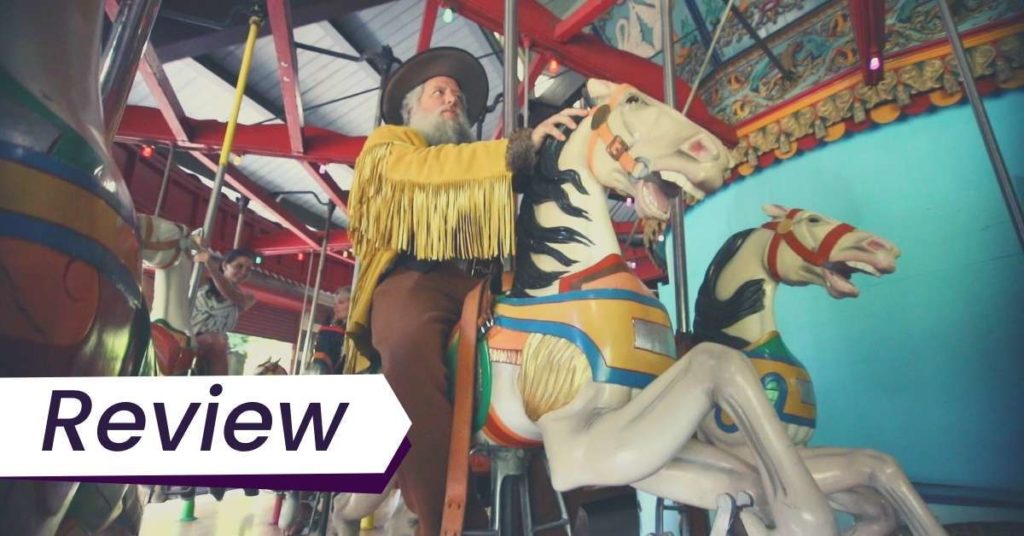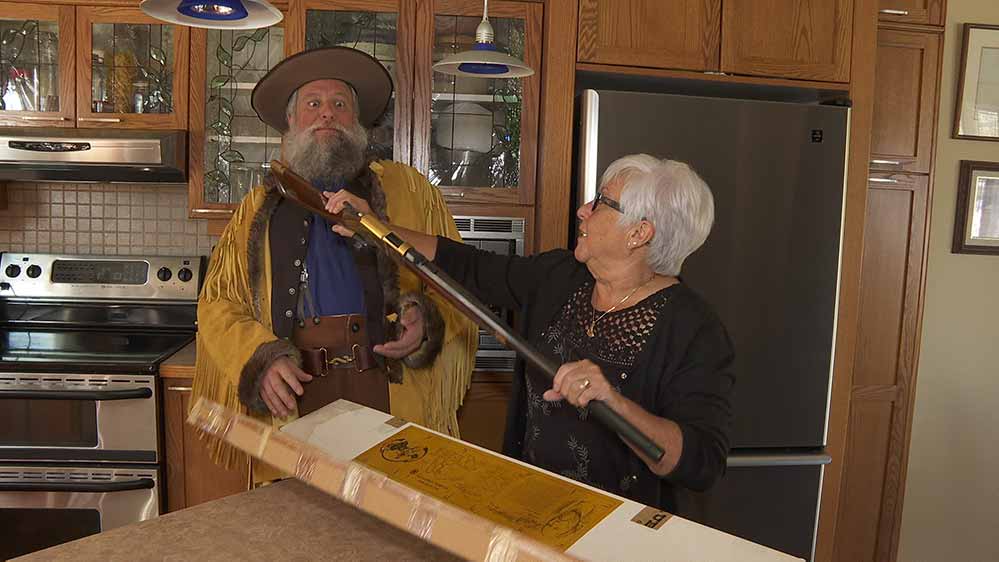Trevor Cameron takes a road trip through the history of his great-great-uncle, Gabriel Dumont, in his documentary Shadow of Dumont. The film is available to stream at ImagineNative with a day pass until Friday at 10AM, or throughout the festival with a festival pass.

Trevor Cameron’s Shadow of Dumont is one of a series of recent Canadian films — among them, John Ware Reclaimed, No Ordinary Man, Inconvenient Indian — dedicated to reclaiming the history of marginalized people. The film, ostensibly, takes as its subject Gabriel Dumont, a colleague of the better-known Louis Riel, with whom he led the 1885 North-West Rebellion in which the Métis people rose up against the Canadian government’s refusal to honour their rights. Dumont is Cameron’s great-great-uncle, which lends the story a personal touch. Cameron, who resides in Toronto, takes off in a camper van, soon to be covered in a Métis flag, to retrace his ancestor’s journey throughout Saskatchewan and into the United States, where he fled after the rebellion.
The press materials for the film describe it as a road movie in which Cameron, “detached from his Métis roots, and living in Toronto, pilots a campervan across North America to track the life and legacy of his childhood hero, Gabriel Dumont.” I think that’s an apt description because the film is more Cameron’s story than it is Dumont’s; a week after watching the film, I remember few details about Dumont’s life, but many of Cameron’s quirks, including how he dresses like his great-great-uncle would have in 1885 during much of his journey in the film. Cameron treats the film as an adventure narrative, uncovering the story of someone he revered but knew little about. His roots in comedy means he’s always looking for a laugh, trying to keep things bright and light and fun — sometimes, I think, to the film’s detriment.

To me, Shadow of Dumont feels particularly in conversation with Cheryl Foggo’s John Ware Reclaimed as both reveal the stories of important historical figures in the prairies that are hardly known to the rest of Canada. Both directors insert themselves into their films, but whereas Foggo’s film is always centred on John Ware’s story, Shadow of Dumont centres Cameron, instead. Foggo’s presence in her film is to allow her to create a dialogue with friends, family, and academics about how John Ware’s legacy continues to affect them today, including the racism behind why his story remained untold. Foggo’s roots as a journalist mean her approach is very analytical, looking at why we tell stories the way we do — much like Latimer’s Inconvenient Indian.
Cameron, by contrast, tells us up front that he is not an academic, which isn’t necessarily a problem. The difficulty is that he is such a personality that even animated retellings of Dumont’s exploits pale in comparison to Cameron’s charisma, so his ostensible subject gets lost in the shuffle. Although there are occasional mentions of how Dumont’s story has been lost to time because of colonial forces, Cameron is much less interested in interrogating what Dumont’s legacy — or the failure of history to record his legacy — means on a broader cultural scale. In the end, the film is more the story of Cameron’s search for his identity than it is about Dumont’s legacy and our flawed retellings of history.




